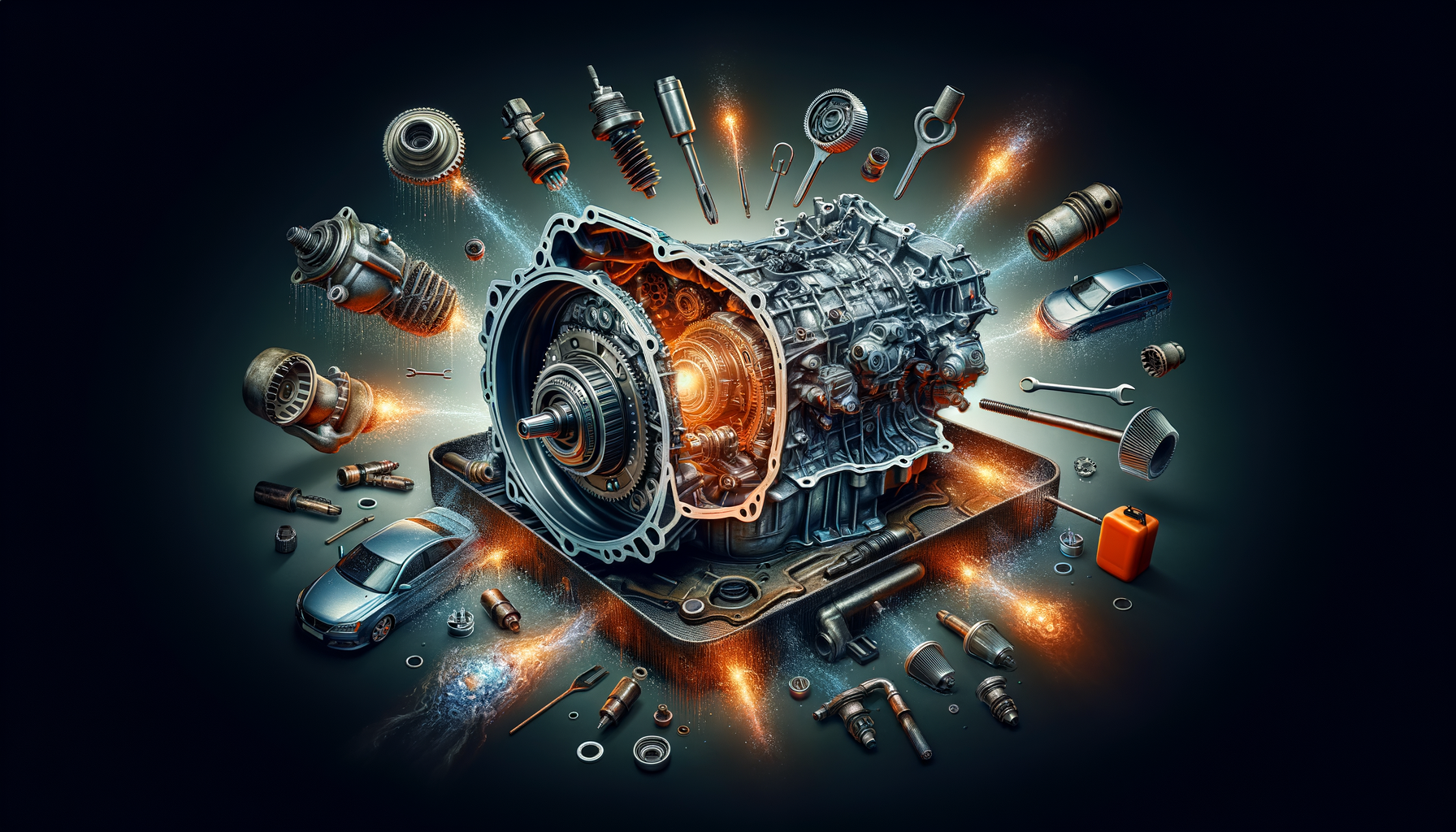Understanding Transmission Problems
Transmission issues can be daunting, especially for those unfamiliar with vehicle mechanics. However, understanding the basics of how your transmission works can help you identify potential problems early. The transmission is a crucial component of your vehicle, responsible for shifting gears and transferring power from the engine to the wheels. When it malfunctions, it can lead to a host of issues, including decreased fuel efficiency and poor vehicle performance.
Common signs that your transmission might need repair include unusual noises, such as grinding or whining, and a noticeable delay in gear shifting. You might also experience slipping gears, where the vehicle changes gears unexpectedly. These symptoms often indicate that your transmission fluid is low or contaminated, which can cause significant damage if not addressed promptly.
To prevent these issues, regular maintenance is essential. This includes checking the transmission fluid level and quality, as well as scheduling routine inspections with a professional mechanic. By staying proactive, you can ensure your vehicle runs smoothly and avoid costly repairs down the line.
Common Signs of Transmission Trouble
Being aware of the early warning signs of transmission trouble can save you from major repairs. One of the most common indicators is a burning smell, which often signals overheating. This can be caused by low or old transmission fluid, which needs to be addressed immediately to prevent further damage.
Another sign is fluid leaks. Transmission fluid is typically bright red and has a sweet smell. If you notice any leaks under your vehicle, it’s important to have them checked by a professional. Ignoring leaks can lead to low fluid levels, which can cause the transmission to overheat and fail.
Additionally, a check engine light can be a sign of transmission issues. While this light can indicate various problems, it’s crucial to have it diagnosed by a mechanic to determine the exact cause. Ignoring these signs can lead to more severe damage and expensive repairs.
Steps to Take When You Suspect Transmission Issues
If you suspect your vehicle has transmission issues, the first step is to check the transmission fluid. Ensure it is at the correct level and free from contaminants. If the fluid appears dirty or has a burnt smell, it may be time for a change.
Next, listen for any unusual noises when the vehicle is in gear. Grinding or clunking sounds can indicate worn-out parts or insufficient lubrication. In such cases, it’s wise to consult a mechanic who can perform a thorough inspection and diagnose the problem accurately.
Finally, monitor the vehicle’s performance. If you notice any slipping gears or delays in acceleration, it’s crucial to address these issues promptly. Delaying repairs can lead to more extensive damage and higher repair costs.
Repair Options and Considerations
When it comes to repairing your transmission, there are several options to consider. Minor issues, such as fluid changes or replacing worn-out parts, can often be resolved quickly and at a lower cost. However, more severe problems might require a complete rebuild or replacement of the transmission.
Rebuilding a transmission involves disassembling it, inspecting each component, and replacing any damaged parts. This option can be cost-effective if the damage is not extensive. On the other hand, replacing the transmission with a new or refurbished one might be necessary if the damage is beyond repair.
When choosing a repair option, consider the age and value of your vehicle. For older vehicles, investing in a costly repair might not be practical. In such cases, it might be more economical to consider purchasing a new vehicle.
Preventive Maintenance Tips
Preventive maintenance is key to prolonging the life of your transmission. Regularly checking and changing the transmission fluid is one of the simplest yet most effective ways to prevent issues. Ensure the fluid is at the correct level and free from contaminants.
Schedule routine inspections with a trusted mechanic. They can identify potential problems early and recommend necessary repairs before they escalate. Additionally, avoid aggressive driving habits, such as rapid acceleration and harsh braking, which can put unnecessary strain on the transmission.
By following these preventive measures, you can maintain your vehicle’s performance and avoid costly repairs. Regular maintenance not only extends the life of your transmission but also enhances the overall driving experience.



Leave a Reply